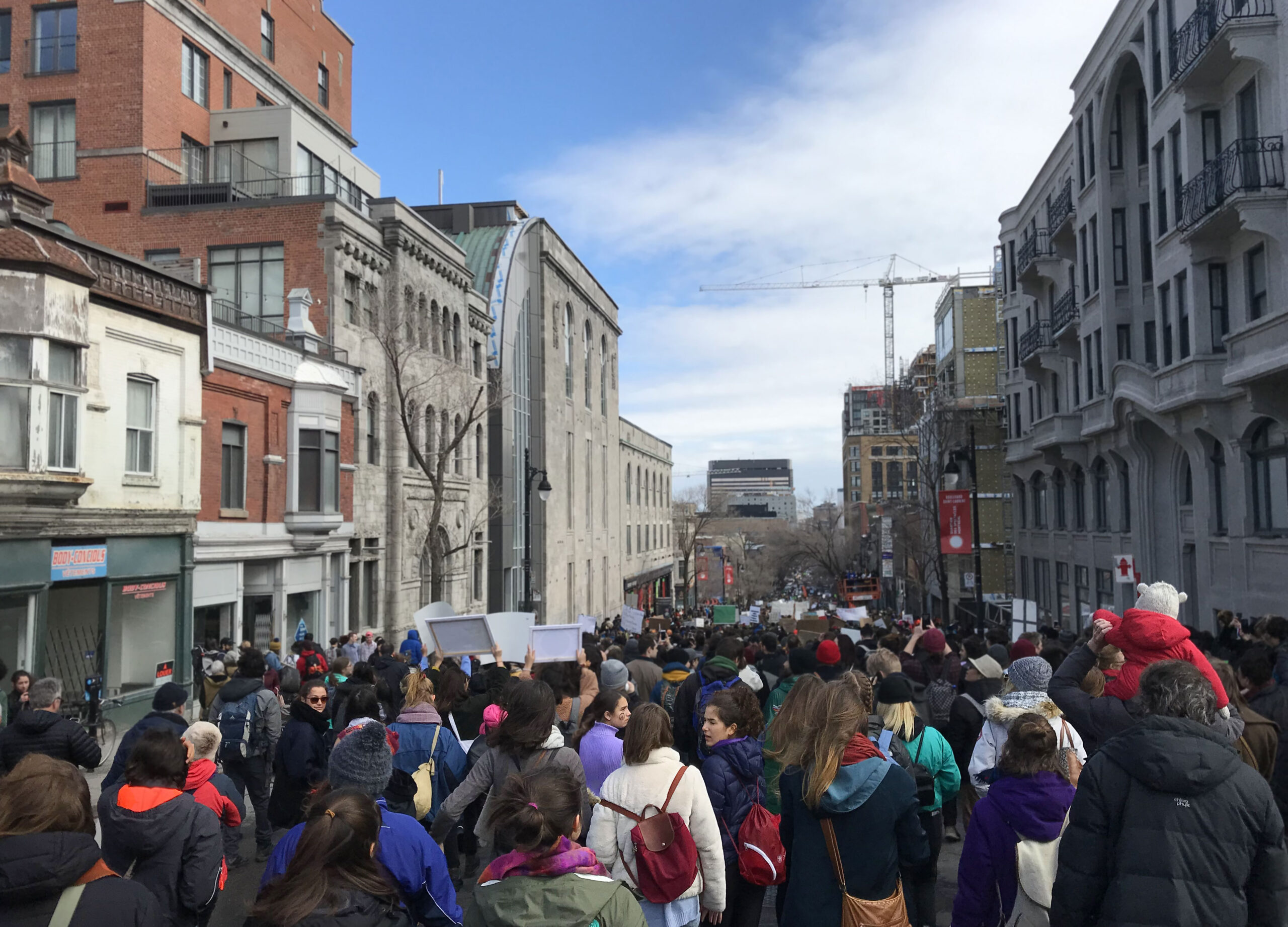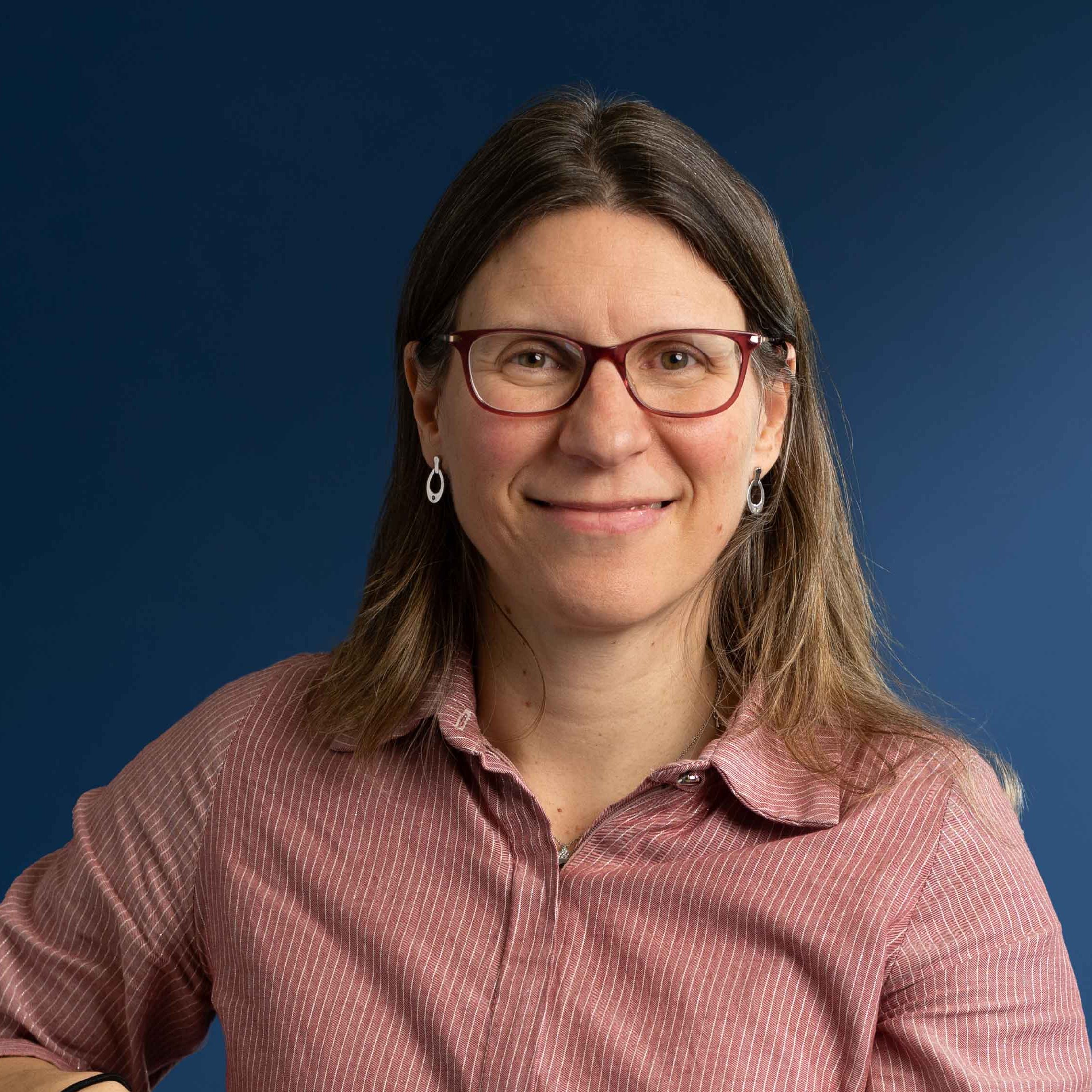- Research
- Science and Society
The Collaboratoire Villes Voix Visions will focus on inequities in urban spaces and the political action meant to contest them.

Demonstration on Saint-Laurent Boulevard, Montreal. Credits: Nathan McClintock
The new Collaboratoire Villes Voix Visions (C3V), part of the Institut national de la recherche scientifique (INRS), launched in Montreal this fall of 2024 and specialize in research on the inequities observed in cities.
This laboratory is co-directed by professors Stéphane Guimont Marceau and Nathan McClintock who are both based at the INRS Urbanisation Culture Société Research Centre. Drawing on a knowledge co-creation approach, they will be supported by numerous local partners as well as their master’s and doctoral students.
Through fieldwork and collaborations, the C3V will offer an in-depth understanding of urban realities, civic relations, and social and community initiatives that hope to address inequities.
The C3V’s research program focuses on three areas of research and engagement.
- Cities (Villes) refers to the uneven and unequal production of urban space, how those most affected experience and contest such inequities, and how these contestations, in turn, transform urban space.
- Voices (Voix) refers to the diversity of people and their experiences, and to their efforts to challenge dominant discourse and reshape and reclaim their narratives.
- Visions fosters discussion on alternatives for a more just, sustainable, anti-racist, and decolonial future.

“Today, our societies are complex systems, bringing together individuals from all backgrounds, with very diverse life stories. The C3V will offer a rich, in-depth look at life in urban spaces. I applaud this initiative, which strengthens our expertise in urban studies while creating further research opportunities for our current and future partners.”
Marie-Soleil Cloutier, Professor and Director of the Urbanisation Culture Société Center of INRS
A methodology focused on co-creation
The C3V aims to draw on critical and Indigenous approaches, as well as story-based participatory methods. As such, it is equipped with an audio recording and production studio, equipment for data collection in the field, a workshop space dedicated to collaborative activities, and a laboratory.

“It’s a real pleasure to have been able to create a space like this, which will support the work of partner organizations and students alike. We look forward to participating in the projects that will emerge from this synergy,” says Professor Guimont Marceau, who specializes in Indigenous and non-Indigenous relationships, political action, and contested spaces.
These multiple methods of recording and sharing knowledge will allow the C3V to create material for scientific debate in multiple disciplines, while at the same time raising public awareness.
“The results of this research will also inform policymakers, who will be able to better understand the lived experiences of urban populations,” explains Professor McClintock, an expert in critical geography and environmental justice. “This future work will be of great use for various players within the municipal, community, and civic spheres.”

“The results of this research will also inform policymakers, who will be able to better understand the lived experiences of urban populations,” explains Professor McClintock, an expert in critical geography and environmental justice. “This future work will be of great use for various players within the municipal, community, and civic spheres.”
This initiative was made possible by a grant from the Canada Foundation for Innovation (CFI) and funding from the INRS Urbanisation Culture Société Research Centre.
The C3V is located on unceded Indigenous territory. Recognizing the territory where we are located, as well as our individual and collective links to the historical and modern violence of settler colonialism and slavery, is both a moral obligation and a small but important step in our efforts to build a more just world. This is the vision that the C3V projects seek to support.
